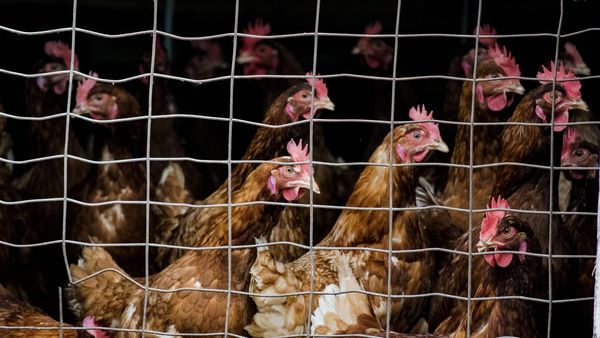
Mayer-Rokitansky-Küster-Hauser (MRKH) syndrome is a rare congenital disorder that affects the female reproductive system.
Women with MRKH are born without a womb or upper two-thirds of the birth canal.
The condition affects one in every 5,000 women across the globe and renders sufferers unable to carry children.
Read on for everything you need to know about MRKH.
What is MRKH?
Mayer-Rokitansky-Küster-Hauser is a congenital disorder, meaning it’s present at birth, and takes its lengthy name from the doctors who discovered it.
It's a rare condition where parts of the reproductive system don't develop fully or at all.
Cases vary, but most patients will not have a uterus and therefore won’t have menstrual cycles.
They are genetically female and have normal ovaries, eggs and female sex hormones, but they cannot get pregnant.
A woman with MRKH also doesn't develop a cervix. Given that the cervix is crucial to the development of the vagina, this means patients have just a third of what would constitute a normal length vagina.
How does it affect people?
Women with MRKH cannot carry children themselves and will need to seek alternative methods, such as adoption or in vitro fertilisation (IVF) combined with surrogacy, should they want to have children.
In most cases, their vagina is not large enough for intercourse, meaning they will need to undergo treatment in order to have sex. This is known as dilation, which works by expanding the length of the vagina.
This consists of using graded plastic tubes of various lengths and widths and inserting them for prolonged periods of time so as to stretch the lower vaginal skin.
Gillian Rose, consultant at London's Queen Charlotte’s and Chelsea Hospital, a leading specialist commissioned centre for disorders of reproductive development, explains how this is instructed with close supervision and support, which usually leads to high success rates, resulting in women being able to enjoy comfortable sex.
"Skin contains elastic fibres, which, with pressure, will stretch so that the tissue in the lower vagina can be stretched to give adequate length," she tells The Independent.
What causes it?
Because so few people have MRKH, very little research has been done into it and the cause is unknown.
But the National Institute of Health explains that the reproductive abnormalities arise due to incomplete development of the Müllerian duct. This is the structure in the embryo that usually develops into components that make up a normal reproductive system, such as the uterus, cervix and the upper part of the vagina.
The cause for this underdevelopment is unknown, though some research claims that it derives from a combination of genetic and environmental factors.
How is it diagnosed?
Most women won’t realise they have MRKH until their late teens, when they start to wonder why they still haven’t started their periods.
After seeking advice from a GP, who may examine the length of the vagina, a series of tests will be carried out, such as ultrasounds and/or MRI scans to determine whether or not a woman's womb is present.
Is there a cure?
There is no cure as such for MRKH, but groundbreaking research into womb transplants means there soon might be.
Surgeons in the UK are currently in the process of choosing women born without wombs to have the first surgery of this kind on British soil - previous operations have been successful in Sweden. They hope to operate in February.
It's possible that after undergoing a womb transplant, a woman with MRKH may be able to carry a child herself.
In December, for example, a Brazilian woman born without a uterus became the first person to give birth to a live baby after having had a womb transplant donated by a deceased donor.







